Celebrating Twenty Years of Giving Life to Stories
For 20 years, the Holocaust Survivor Memoirs Program has preserved the voices of Holocaust survivors for future generations. Now we’re sharing the story behind the stories — how it began, what we’ve learned and the unforgettable moments along the way.
Each video is just 1–2 minutes, but together they tell a story 20 years in the making.
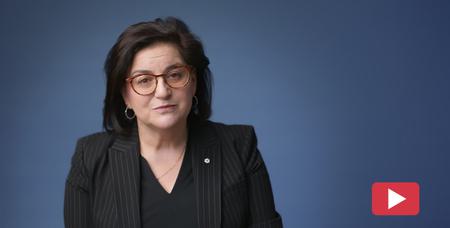
How it all Began
How it all Began
This year, we’re celebrating 20 years of the Holocaust Survivor Memoirs Program — two decades of giving life to stories. To mark this milestone, we’re launching a special series: 20 short videos that tell the story behind the stories.
Follow along as we look back, reflect and celebrate the survivors who entrusted us with their histories — and the readers, educators and communities who carry them forward.
In the very first video, Naomi Azrieli, chair and CEO of the Azrieli Foundation and publisher of the Memoirs Program, considers her father’s vision — and how one idea grew into two decades of impact.
Watch Naomi share how it all began.

Overview
Overview
“The survivor stories are at the heart of our program. But how we get those stories out into the world continues to change.” — Jody Spiegel, director, Holocaust Survivor Memoirs Program
From memoirs and audiobooks to films and classroom resources, Jody shares how the program has grown over 20 years — and why ensuring accessibility for every student and teacher matters so deeply.
Watch Jody share how the program gives life to stories.
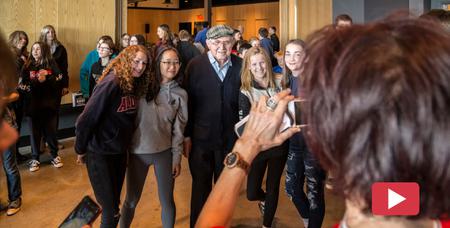
Stories Resonate
Stories Resonate
“The stories resonate with everybody… sometimes they even make you think about your own life.” — Elin Beaumont, who led our community initiatives for 15 years
Watch Elin explain why survivor stories matter.
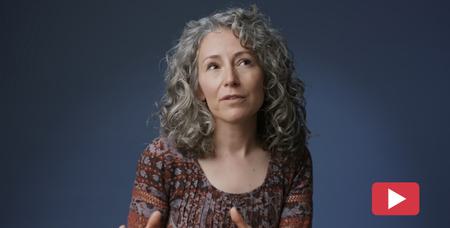
Editing Process
Editing Process
“The most gratifying part is handing the completed book to the survivor or their family — knowing their story will live on.” — Arielle Berger, managing editor
Watch editors Arielle, Devora and Matt share that every step of bringing a story to life is guided by care for the stories, attention to the details and respect for the survivor and the history.
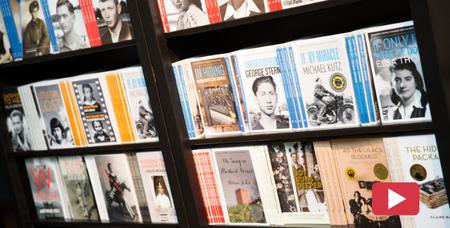
Fact Checking
Fact Checking
“It can be a really fine, tricky balance to honour an author’s truth and match that with historical truth.” — Arielle Berger, managing editor
Watch Naomi Azrieli and Arielle Berger share how editing survivor stories is both a privilege and a responsibility.
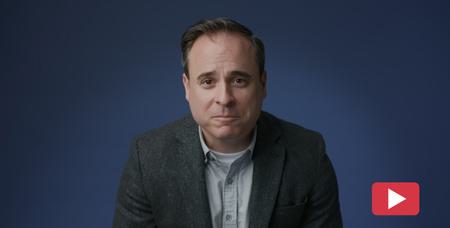
First Project
First Project
“The first project I worked on was copyediting the women’s anthology… I was a new father with a small baby at home, reading stories about mothers and babies and violence. I was raw.” — Matt Carrington, senior editor.
Watch Matt reflect on how his first project as an editor of survivor memoirs intersected with his own life as a new father.

The Moment
The Moment
“This was happening…. Our survivors were authors. They were published authors.”
— Jody Spiegel, director, Holocaust Survivor Memoirs Program
For Holocaust Education Week, we are showcasing how the memoirs of Holocaust survivors are used in schools across Canada and the impact that survivor voices have on students.
Watch Jody describe the moment she realized these books would change the landscape of Canadian classrooms.

Educational Goals
Educational Goals
“The goal is that in every classroom, one of our survivor memoirs…and their voices, are part of the conversation.”
— Jody Spiegel, director
Jody Spiegel, Marc-Olivier Cloutier and Michelle Sadowski share the heart of the Holocaust Survivor Memoirs Program’s educational mission — ensuring that survivor memoirs reach students, and that teachers are trained and supported to teach this history with confidence and care.
Watch Jody, Marco and Michelle reflect on the goals of our Holocaust education program.

Teaching Teachers
Teaching Teachers
“When the Foundation started publishing memoirs, we realized that teachers needed guidance on how to bring the Holocaust into the classroom in a way that was both respectful to history and mindful of students.”
— Michelle Sadowski, educator
Michelle reflects on how we support teachers, ensuring that Holocaust education is not only accurate but also sensitive to the needs of every student in their classroom.
Watch Michelle share our approach to Holocaust education.

Cooking with Pinchas
Cooking with Pinchas
“For so many students, their experience of learning about Jewish people is learning about the Holocaust. We wanted to broaden that lens.” — Ben Gross, teacher
Ben Gross, a teacher at a Toronto high school, highlights that there are many ways survivor memoirs can bring learning to life in classrooms.
Watch Ben share how he and his students combined cooking and storytelling with Holocaust survivor and author Pinchas Gutter.

Connection
Connection
“I’m always surprised how students who recently arrived in Canada can relate so much to the survivor’s journey.”
— Marc-Olivier Cloutier, manager of education initiatives
Marco shares the powerful connections he witnesses when survivors speak about coming to Canada after the war. Students who are new to this country often recognize themselves in these stories. From food that feels unfamiliar to feeling out of place, their experiences mirror those described by survivors. The bond formed is immediate — and beautiful to see.
Watch Marco reflect on how survivor experiences of coming to Canada resonate with students.

School with Kitty
School with Kitty
“Kitty took a special moment with each student to ask them their name…to ask them a question about themselves…particularly students who were immigrants…. She felt like, ‘I get you, and you get me.’”
— Michelle Sadowski, educator
Michelle shares Kitty’s experience of speaking to students about her survival during the Holocaust and connecting with them on a deeper level.
Watch Michelle share the impact that meeting survivors has on students, and vice versa.

Sharing these Stories
Sharing these Stories
“These stories potentially could go untold if they’re not given the opportunity to be shared.”
— Elizabeth Banks, curator and archivist
Watch Elizabeth explain why sharing these stories matters.

Choosing Book Titles
Choosing Book Titles
“This is the author’s legacy…encapsulating what a survivor has gone through. Finding a title to match is a really complex process.”
— Editors Arielle Berger and Devora Levin
Watch Arielle and Devora share the challenge of naming survivor memoirs."

Translation Challenge
Translation Challenge
“You really have to be curious, vigilant, just like, can’t take a word for granted.”
— Catherine Aubé, editor of French translations
Watch Catherine reflect on the art and responsibility of translation.

Other Side of the Camera
Other Side of the Camera
“Some of the things that don’t often get captured in what we do…are some of the most moving moments.”
— Liam Romalis, filmmaker
Watch Liam reflect on what happens on the other side of the camera.

Kitty and Ellen
Kitty and Ellen
“I remember the way that they would speak to each other; it was like they were little girls again.”
— Jody Spiegel, director
Listen to Jody share the emotional and touching reality of the survivors and their book launches.

Rachel Shtibel
Rachel Shtibel
“It’s trauma upon trauma, and yet, the most exceptional resilience.”
— Naomi Azrieli, president
Watch Naomi recount her experience working with Holocaust survivor Rachel Shtibel.

Audiobooks
Audiobooks
“The audiobook project allows students who aren’t readers to find another way to learn from a memoir. They listen to the voices of the survivors who wrote the memoirs and then recorded them — a project that is the first of its kind in history.”
— Jody Spiegel, director
Listen to Jody share the importance of audiobooks, as well as the impact of having Holocaust survivors both write and tell their own stories.

Travelling North
Travelling North
“I think communities in Northern Canada often feel forgotten…for them to have us to do things in English and in French, the reception was amazing.”
Watch Marco reminisce on how his journey up north with a survivor impacted the local community.

Favourite Part
Favourite Part
“It’s very different to hold [a published book] in your hands and to feel the weight of it.”
— Devora Levin, editor
Watch Devora share her favourite part of the work.

SXSW
SXSW
“The room was full…and we sat and we spoke, but when Pinchas spoke, he stood up, no notes, he just answered questions and it was from the heart…and at the very end, it just erupted into applause, a standing ovation.”
Listen to Jody talk about how Holocaust survivor Pinchas Gutter captured hearts at SXSW.

The Question
The Question
“What question have I asked our authors the most? What they had for breakfast.”
— Jason Charters, filmmaker
Watch survivors share some heartwarming details about their lives.

The Power of Artifacts
The Power of Artifacts
“The meaning of these stories I really connect to the objects that come in…when these survivors share the stories of their prewar life, and there are visuals to accompany it, that’s incredibly meaningful.”
Listen to Elizabeth share the effect that artifacts can have when they accompany survivor stories.

Coming Soon
Coming Soon

Coming soon
Coming soon




